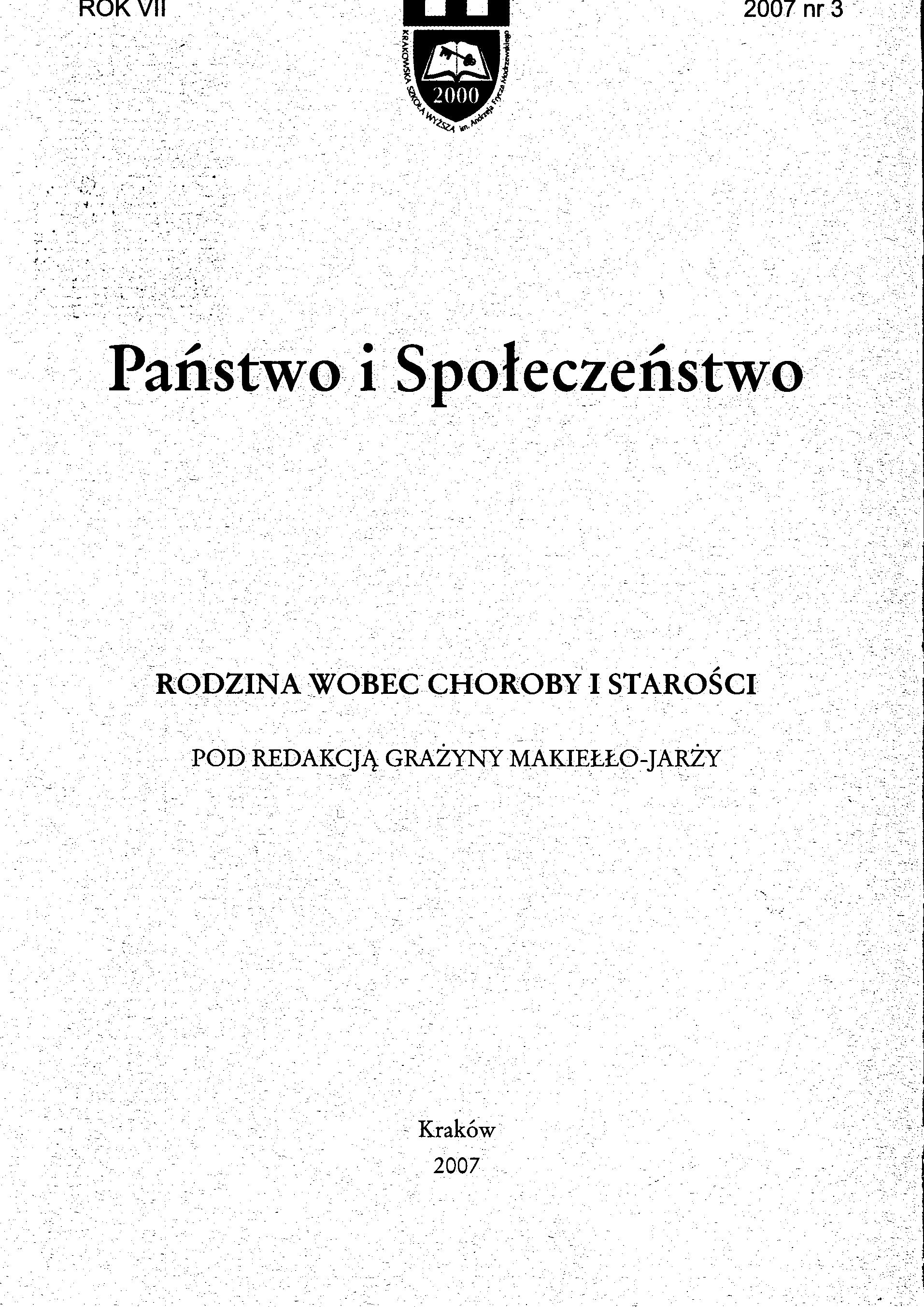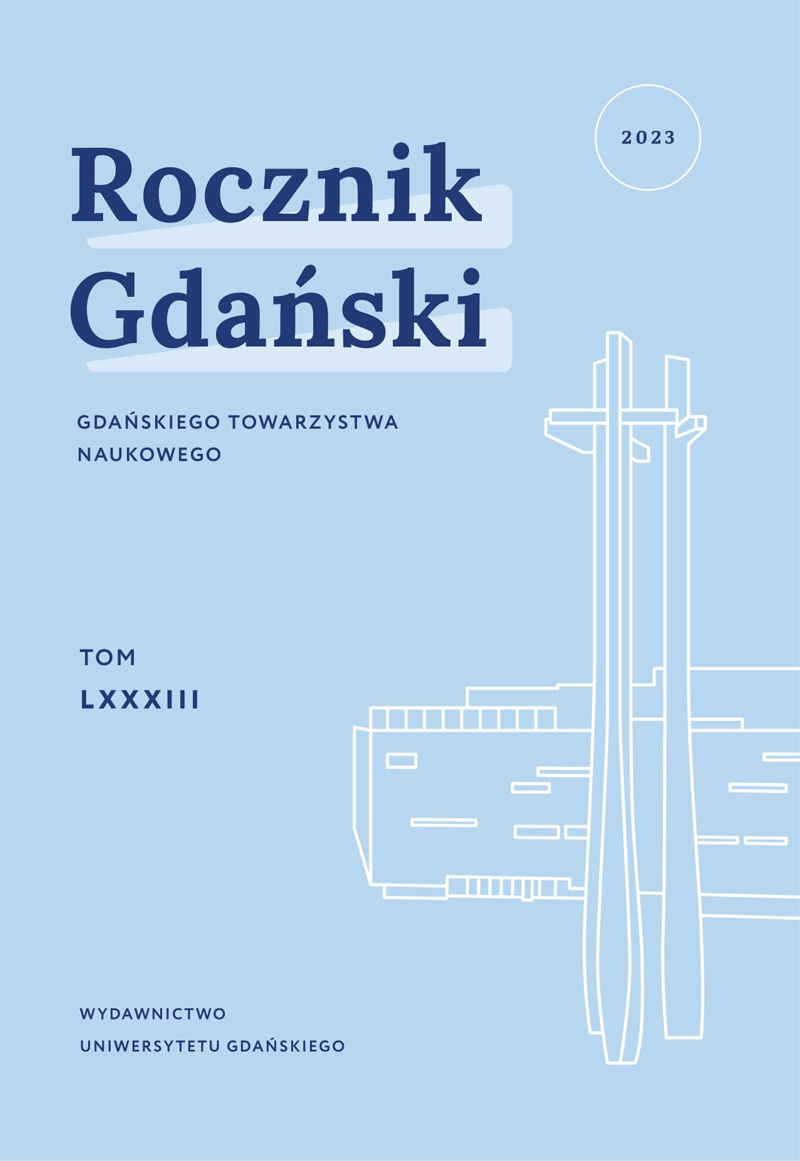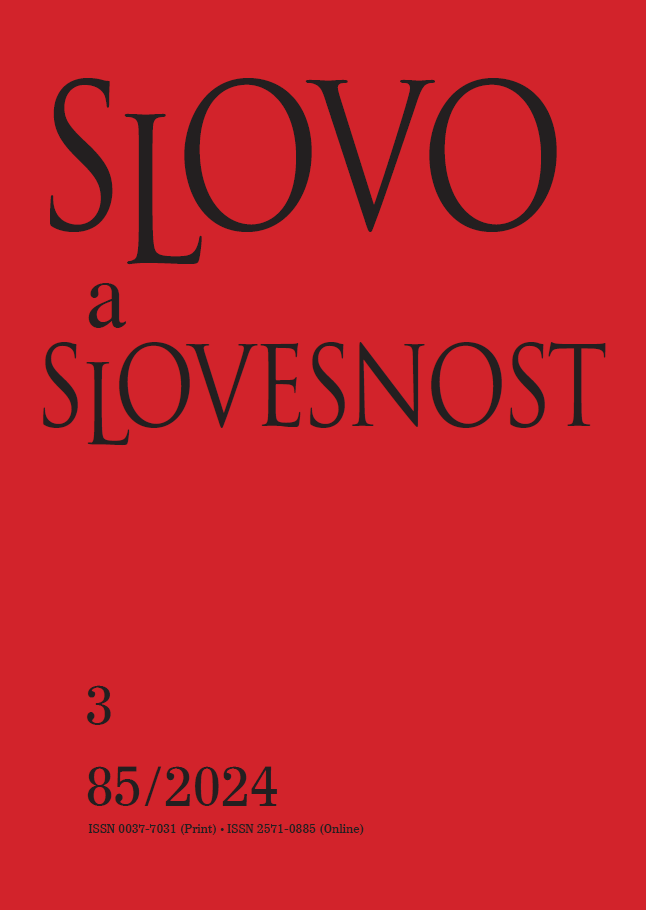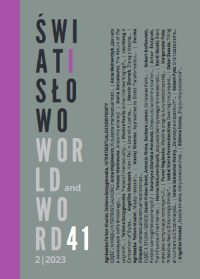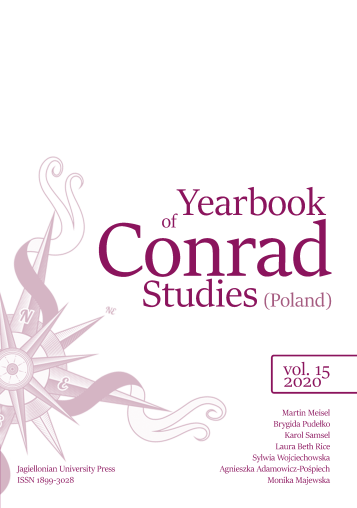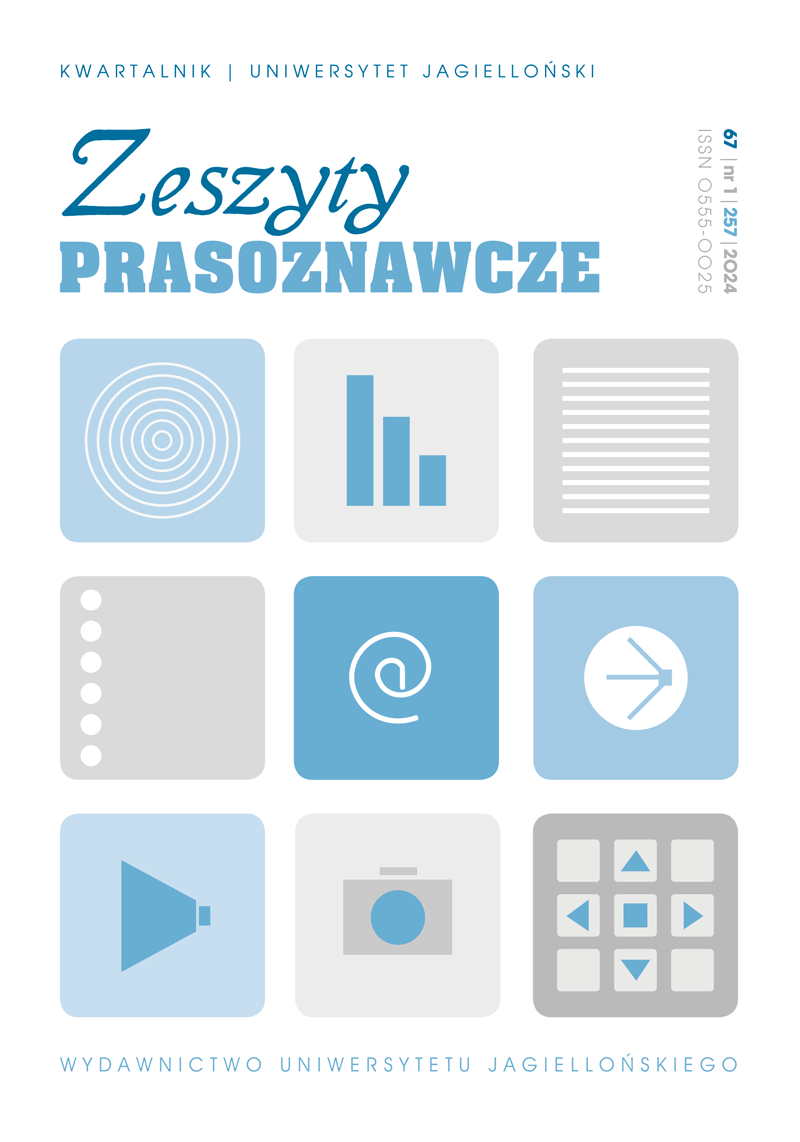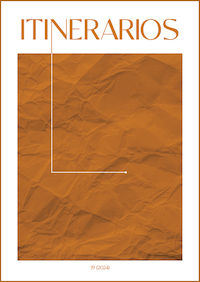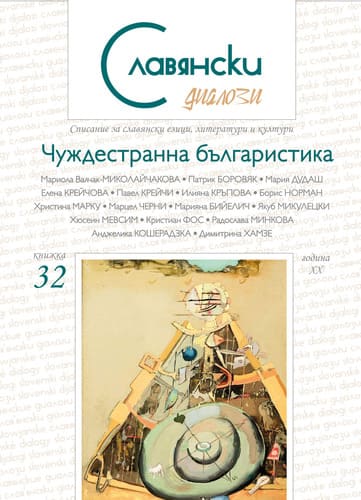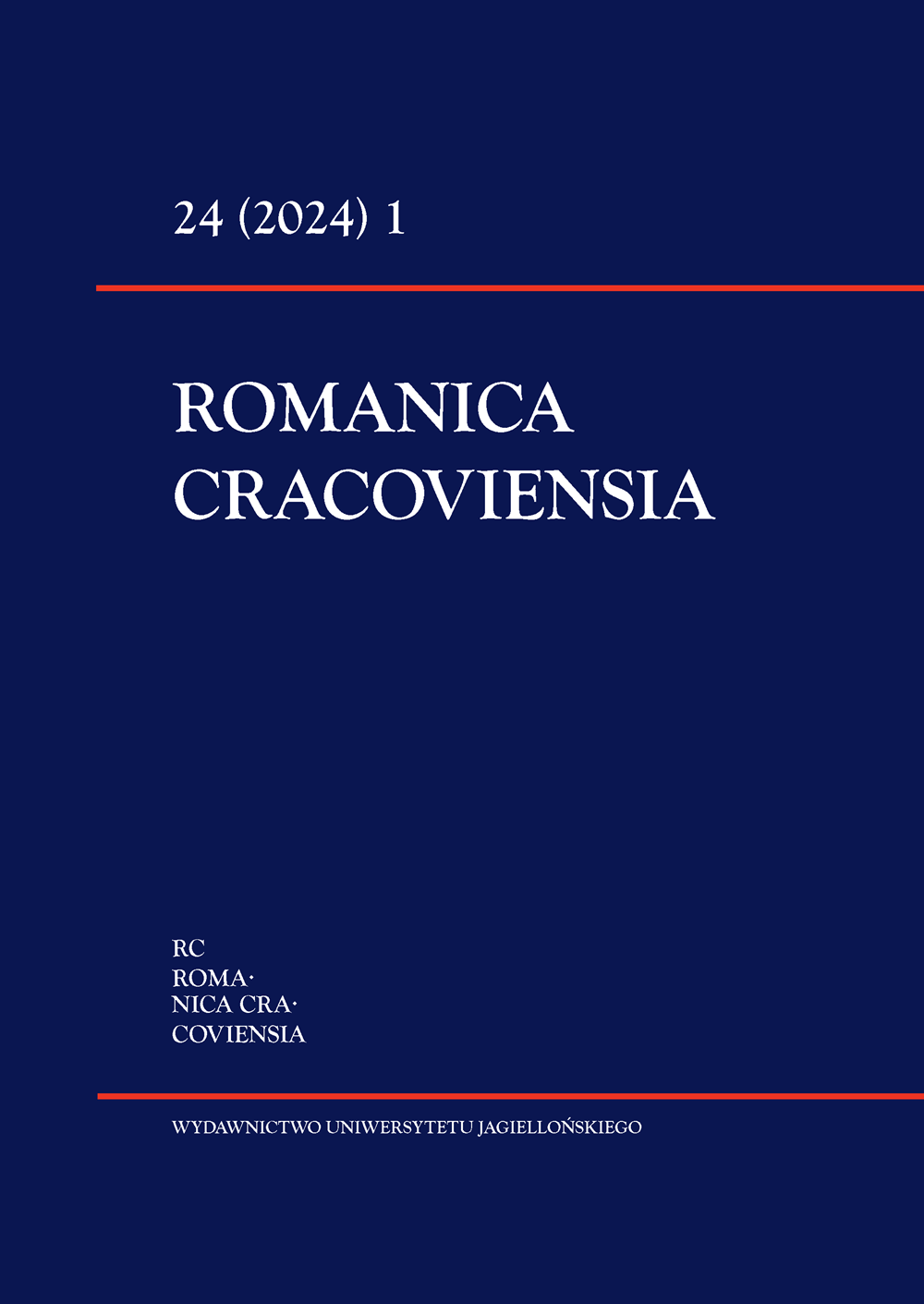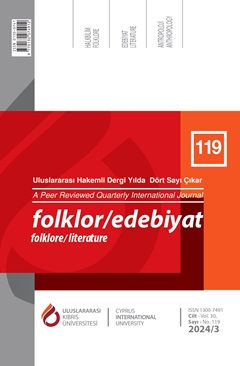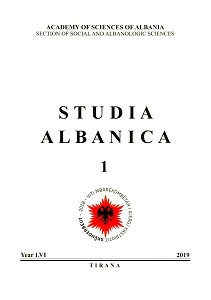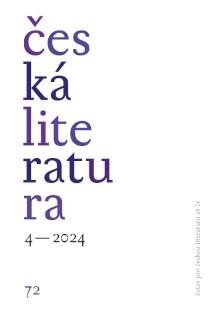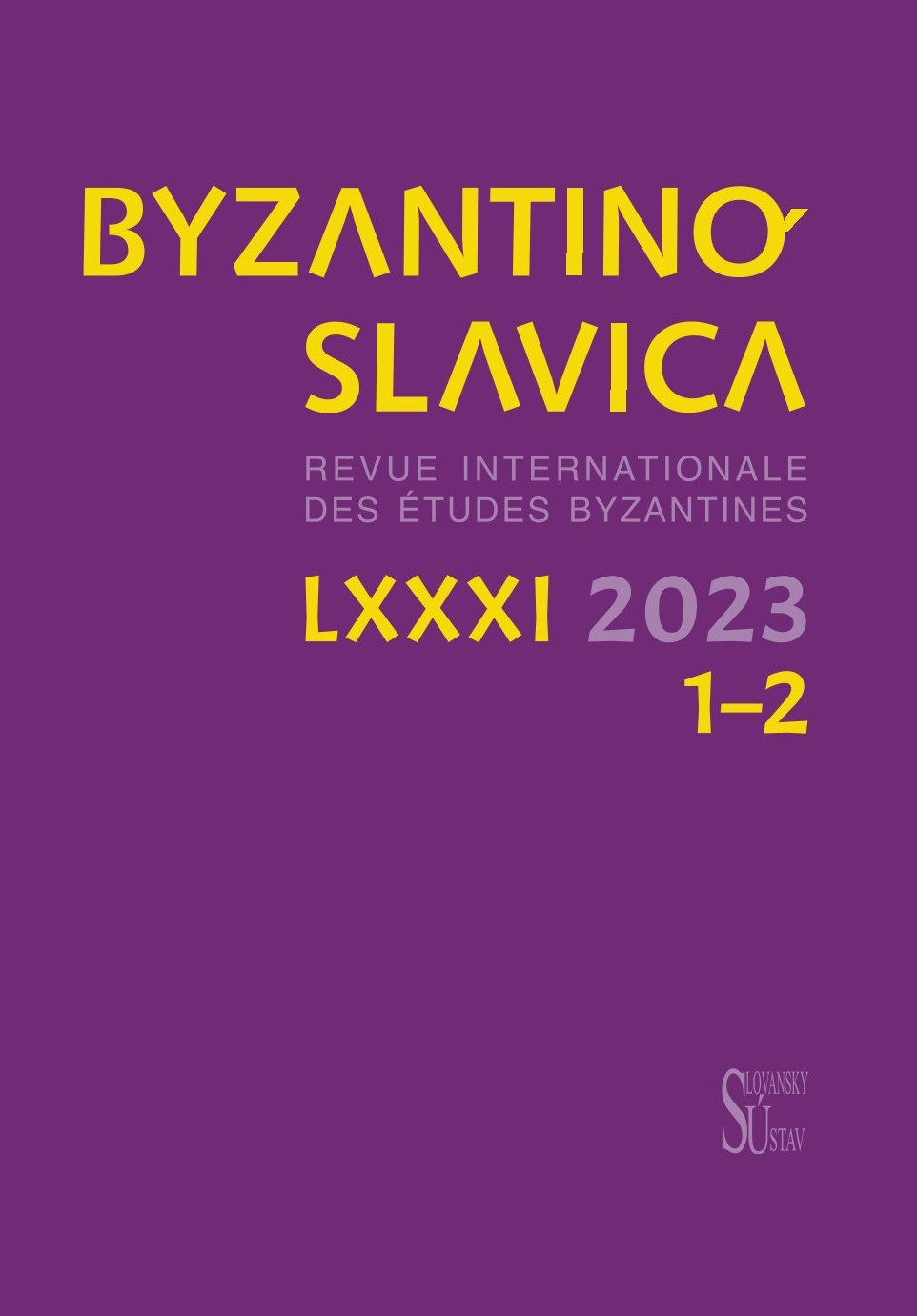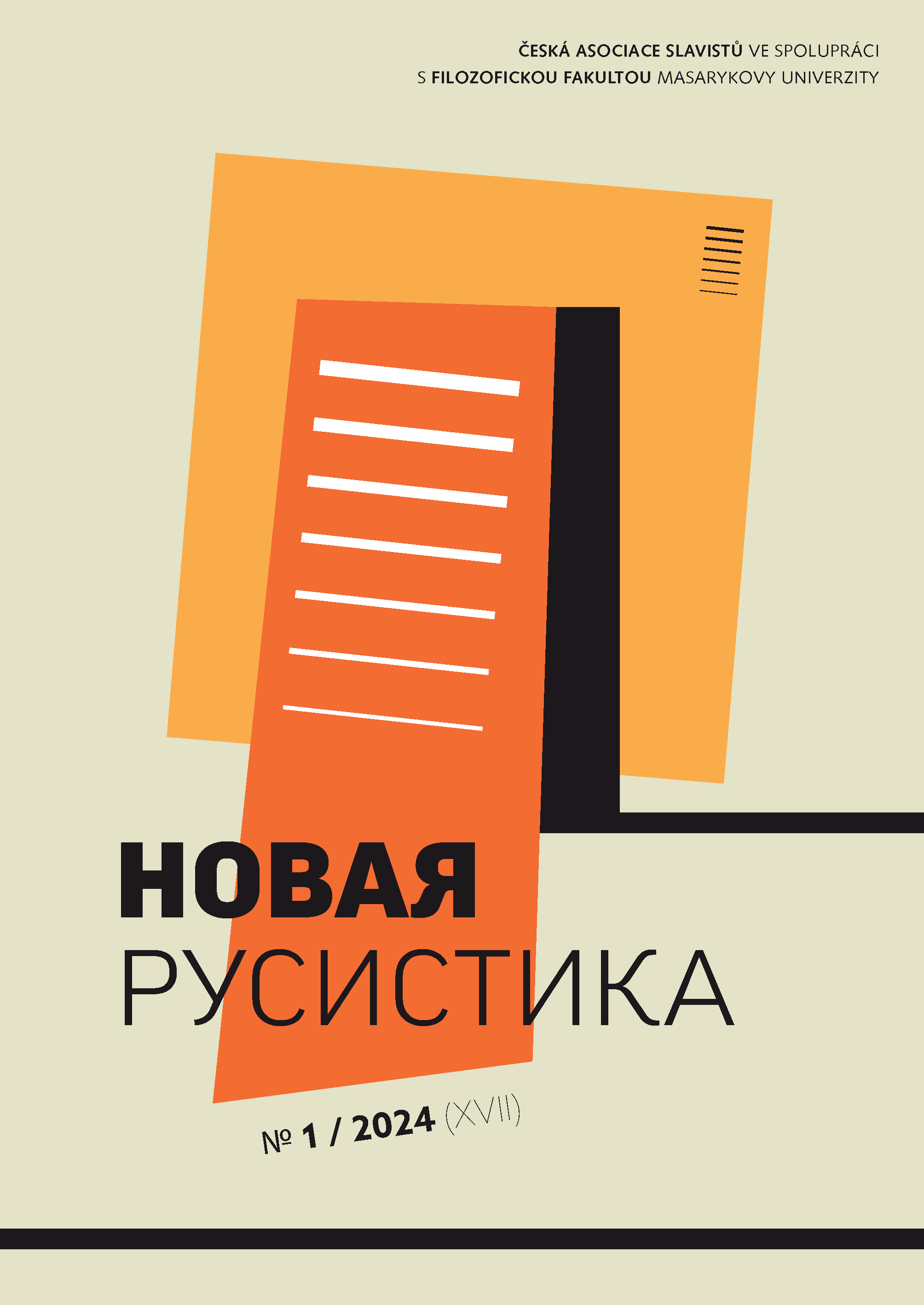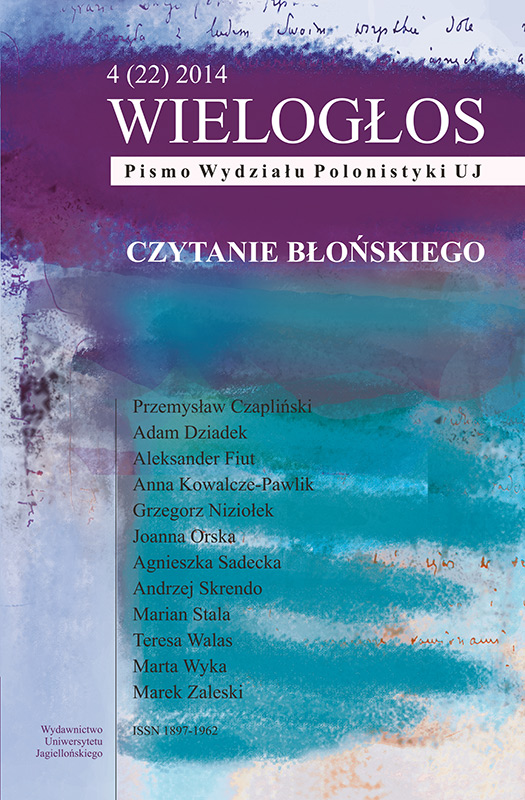
Zagłada jako nieczystość
The study concerns the category of “purification” and contradictory meanings attributed to it in an essay by Błoński titled Biedni Polacy patrzą na getto (The Poor Poles Look at the Ghetto) (1987). The first sense, for the author the only possible, refers to the Christian penitential order (complicity of Poles for the Holocaust – guilty conscience – religion – gaining forgiveness – purification). The two other senses come into conflict with the above characteristics. One of them is associated with social system of purity, which in the post-war Polish culture has appointed the status of dirty matter to the Holocaust. The last refers to the Polish affects that treat the Holocaust as what is disgusting. Three varieties of impurities (fault – dirt – disgust) imply three different ways of purification.
More...
